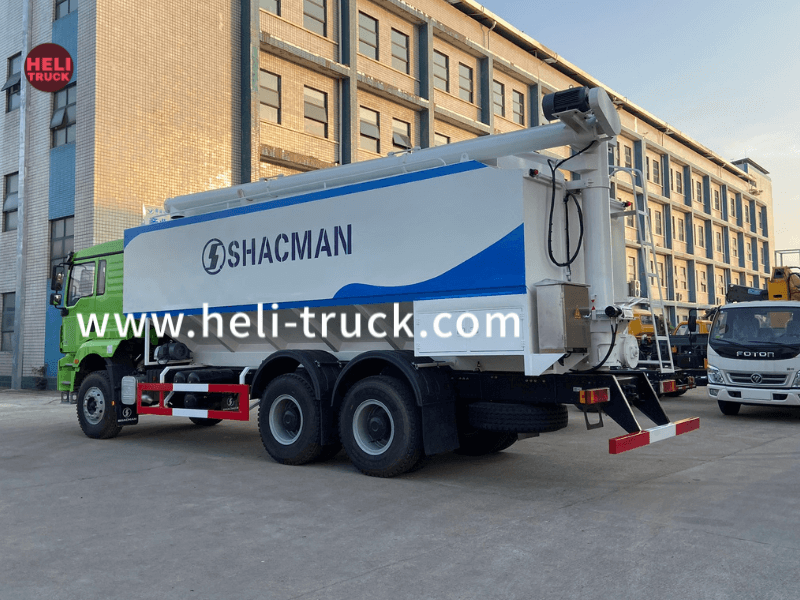Introduction
Urban areas around the world are facing a growing challenge of managing increasing amounts of waste generated by the population. Inefficient waste management not only leads to environmental pollution but also poses health hazards to residents. To address this issue, cities are turning to innovative solutions such as garbage compactor trucks. These specialized vehicles play a crucial role in streamlining waste collection and disposal processes, ultimately contributing to a cleaner and healthier urban environment. This article explores the significance of garbage compactor trucks in urban waste management, their operational mechanisms, benefits, and the challenges associated with their implementation.
Importance of Garbage Compactor Trucks in Urban Waste Management
Garbage compactor trucks, also known as compactors or trash compactors, are essential tools in urban waste management systems. These vehicles are specifically designed to collect and compact solid waste, significantly reducing its volume before disposal. This process not only optimizes the use of limited landfill space but also minimizes the frequency of waste collection trips, thereby improving operational efficiency and reducing costs for municipal authorities.
One of the key advantages of garbage compactor trucks is their ability to compress waste materials, such as household garbage, commercial waste, and industrial refuse, into tightly packed loads. By compacting the waste, these trucks can transport larger quantities of garbage in each trip, leading to fewer trips to disposal sites. https://www.heli-truck.com/shacman-f3000-16000-liters-high-pressure-water-jetting-truck/ reduces fuel consumption and greenhouse gas emissions but also alleviates traffic congestion in urban areas, especially during peak hours.
Furthermore, garbage compactor trucks play a crucial role in maintaining cleanliness and hygiene in cities by preventing littering and illegal dumping of waste. By providing a reliable and systematic waste collection service, these vehicles help prevent the accumulation of garbage on streets, sidewalks, and public spaces, thus enhancing the overall aesthetic appeal of urban environments. Additionally, compacting the waste reduces the risk of pest infestations and the spread of diseases associated with unattended garbage piles.
Operational Mechanisms of Garbage Compactor Trucks
Garbage compactor trucks are equipped with specialized hydraulic systems and compacting mechanisms that enable them to efficiently collect and compress solid waste. The operational process of these trucks typically involves several key steps:
1. Waste Collection: Garbage compactor trucks are dispatched to designated collection points, such as residential neighborhoods, commercial districts, and industrial areas, to pick up waste bins or containers. Depending on the type of waste management system in place, the trucks may collect mixed waste or separate streams of recyclables, organic waste, and hazardous materials.
2. Compaction: Once the waste is loaded into the truck's hopper or compaction chamber, the compaction mechanism is activated. This mechanism consists of a powerful hydraulic press that compresses the waste, reducing its volume by up to 80-90%. The compacted waste is pushed towards the rear of the truck, where it is stored in a sealed container or compaction body.
3. Transportation: With the waste compacted and securely stored, the garbage compactor truck transports the load to a designated disposal site, such as a landfill, recycling facility, or waste-to-energy plant. The truck's capacity and range vary depending on its size and configuration, with some models capable of carrying several tons of compacted waste over long distances.
4. Disposal: Upon reaching the disposal site, the compacted waste is unloaded from the truck and deposited in the appropriate area for further processing or disposal. In the case of recyclable materials, they may be sorted, baled, and sent to recycling facilities for reprocessing into new products. Non-recyclable waste is typically landfilled or incinerated under controlled conditions to minimize environmental impact.
Benefits of Garbage Compactor Trucks in Urban Waste Management

The adoption of garbage compactor trucks offers a wide range of benefits for urban waste management systems, both in terms of operational efficiency and environmental sustainability. Some of the key benefits include:
1. Increased Waste Collection Capacity: Garbage compactor trucks can significantly increase the volume of waste that can be collected and transported in each trip, leading to fewer collection rounds and reduced labor costs for municipal waste management authorities.
2. Reduced Environmental Impact: By compacting waste and minimizing the number of collection trips, garbage compactor trucks help reduce fuel consumption, vehicle emissions, and traffic congestion in urban areas, thus contributing to lower carbon footprints and improved air quality.
3. Improved Hygiene and Sanitation: The systematic collection and compaction of waste by garbage compactor trucks help maintain cleanliness and hygiene in cities, reducing the risk of disease transmission, pest infestations, and environmental contamination.
4. Optimal Landfill Space Utilization: Compact...
(Note: The article will continue with further details on the benefits, challenges, and future prospects of garbage compactor trucks in urban waste management.)
